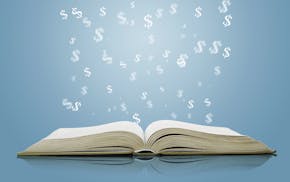Think of prepaid debit cards as the 21st century's version of cash. Load the card with a certain amount of money and use it anywhere plastic is accepted until you spend your last penny. When the money's used up, you reload the card with more cash. They look like debit and credit cards, but they aren't linked to a bank account, there's no credit check and you can't buy now and pay later. Prepaid cards also lack many of the protections regulators require for other plastic in your wallet, although some issuers offer FDIC insurance or coverage from theft.
Getting into the prepaid card business may seem like a strange move for American Express, known for issuing credit cards to consumers with good credit. That is, until you look at the swift growth of prepaid cards.
Americans will put an estimated $70.7 billion on reloadable prepaid cards this year. That's a 153 percent increase from the $28 billion loaded onto such cards in 2009, according to research by Mercator Advisory Group.
It's a product of our times, appealing to consumers who are trying to rebuild the good credit they lost during the recession and those learning to live on less.
"Consumers are making significant use of prepaid cards because they're trying to instill more discipline into their financial lives," explained Ron Shevlin, a retail banking analyst with the Aite Group in Boston. Mom can stay within the grocery budget by loading $100 a week onto a prepaid card. A hungry college student can switch from credit to prepaid card, avoiding the proverbial late night pizza that costs $200 -- after interest charges -- by the time the bill is paid.
Prepaid cards also provide an alternative for checking account customers fed up with rising fees. Jennifer Tescher, head of the Center for Financial Services Innovation in Chicago, thinks more and more consumers with good credit will ditch a checking account that, "at $10 a month or $12 a month, is not offering enough value to them."
Regulatory changes are also paving the way for prepaid cards. Banks have had to eliminate some credit card fees and are currently battling against the Federal Reserve's proposal to cap the fee they earn when a customer uses a debit card at the cash register. So far, prepaid card fees have been left alone. This makes prepaids an attractive market for banks to make up lost fee income. That could translate into higher fees for prepaid users.
Fees are lower, to a point
The American Express prepaid card lacks the activation fees, transaction fees and monthly maintenance fees common among prepaid cards. Every card comes with one monthly free ATM withdrawal. After that, transactions cost $2 apiece. Consumers with a bank account can load the card for no charge. However, the only way for the unbanked to load the card is to pay $4.95 for a GreenDot MoneyPak, available at major retailers. American Express is quick to point out that it's not the company charging that fee. But to consumers a fee is a fee is a fee.
Other prepaid cards allow users to deposit their paychecks for no cost. "Direct deposit is the key to making prepaid affordable ... the reload fee is really the biggest obstacle for prepaid being a good value," Tescher said. American Express spokeswoman Vanessa Capobianco says the company is looking to add direct deposit later this year.
Keep in mind that the American Express prepaid card will only be accepted at merchants that also take American Express credit cards.
When considering a prepaid card, Tescher suggests consumers look at their current method of getting by financially and compare those costs to various prepaid cards. Someone using free checking who never gets hit with an overdraft fee will find most prepaid cards to be a far pricier way to pay. For someone relying on money orders and check cashing establishments, prepaid could be an attractive alternative. You'll only know if you do the math -- and your due diligence.
Kara McGuire • 612-673-7293 or kmcguire@startribune.com Twitter:@Kara_McGuire


